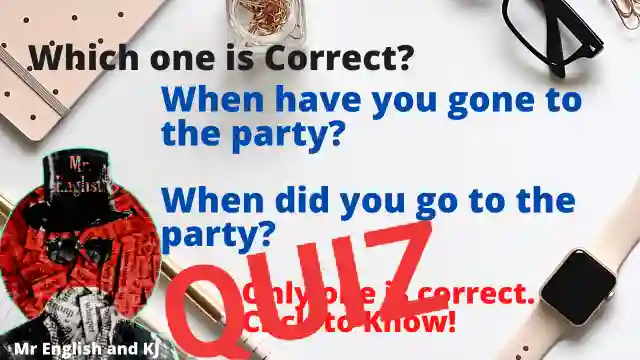
Future Simple Tense — Exercise 5 (Q&A with Solution’s Explanation and Improve English with Words Power)
Practice the Future Indefinite Tense (will and shall Modals) with 10 exam-style questions. Each item includes the correct will/shall + base verb 1st form, an Oxford / Cambridge-style verb definition with POS notes, and a one-sentence explanation for every option (A–D) explaining why it is correct or wrong and what choosing it would mean. Ideal for both learners and teachers. Will and Shall are part of Tense and Modals. You are not only improving your English but also enriching your word power using Vocabulary Builder.
English Grammar Definition: Future Indefinite Tense (will + verb 1st form)
- Form: will / shall + verb 1st form.
- Examples: She will publish new books; We shall come back; will you stop it?
- Main uses:
- spontaneous decisions, promises, predictions, offers, neutral future facts, and decisions at the moment of speaking.
- Signal words: later, in 3050, in future, sooner, forever.
- Negatives / Questions:
will not (won't) / shall not (shan't) + verb 1st form;Will / shall + subject + base verb 1st form? - To learn more about it – Visit Here
Quiz Instructions
- Read each question and choose the best answer out of four given options.
- On top, header section of the quiz, you will see the “title of the quiz,’ ‘spending-time,’ ‘value of question in points,’ and ‘number of questions.”
- Below on footer, you will see Full Screen mode. As the name suggests, it covers the whole screen. It will save a lot of your time attempting the quiz.
- You can zoom the images given in the questions.
- After submitting the quiz, you can see your score and compare with other users.
- The Full Leaderboard link will take you to a page, where you can see all users attempts.
- Below the quiz box, there are explanation of each options. You can study and try again.
- Best of Luck!
Quiz Question, Answer and Explanation
Note: Do remember in the quiz box above, the questions and options will shuffle, so they won’t have the same sequence like 1, 2, 3, or A, B, C as below.
1. They __ the incident timeline to include root cause analysis.
A) will amend B) amend C) are amending D) shall amend
Verb: amend — verb. To make corrections or changes to a document.
A) Correct: will amend — plan/prediction they will update the timeline in future.
B) Wrong: amend (present simple) — routine statement, not a future promise.
C) Wrong: are amending — present continuous implies immediate editing.
D) Wrong: shall amend — awkward with third-person.
2. I __ the access matrix after receiving the manager approvals.
A) shall update B) update C) will update D) am updating
Verb: update — verb. To bring something up to date.
A) Correct: shall update — I’s formal promise to perform the update.
B) Wrong: update (present simple) — not used for a single future commitment.
C) Wrong: will update — acceptable but less formal than shall for I.
D) Wrong: am updating — suggests action is already in progress.
3. They __ notifications in batches to avoid email throttling.
A) will send B) send C) are sending D) shall send
Verb: send — verb. To cause something to go or be taken to a recipient.
A) Correct: will send — future intention to dispatch in batches as a plan.
B) Wrong: send (present simple) — reads as a policy or habitual action, not the action planned.
C) Wrong: are sending — denotes ongoing or imminent activity.
D) Wrong: shall send — odd for third-person plural.
4. We __ a retention extension for archived logs for compliance.
A) shall approve B) approve C) will approve D) are approving
Verb: approve — verb. To officially accept or confirm a proposal.
A) Correct: shall approve — formal commitment by “we” (board/committee) to grant the extension.
B) Wrong: approve (present simple) — describes a policy habit rather than a specific future decision.
C) Wrong: will approve — acceptable but lacks the formal legal flavour of shall.
D) Wrong: are approving — implies the approval is already happening.
5. He __ a mitigation plan and send it to the incident lead.
A) will draft B) drafts C) is drafting D) shall draft
Verb: draft — verb. To prepare a preliminary version of a document.
A) Correct: will draft — future action to prepare the mitigation and provide it.
B) Wrong: drafts (present simple) — general habitual action, not a future one-off.
C) Wrong: is drafting — indicates present activity.
D) Wrong: shall draft — unnatural with third-person subject.
6. I __ a short apology note to affected users this evening.
A) shall write B) write C) will write D) am writing
Verb: write — verb. To compose text.
A) Correct: shall write — personal, formal promise by I to compose the apology.
B) Wrong: write (present simple) — not standard for a one-off promised future act.
C) Wrong: will write — less formal/promise-like than shall for I.
D) Wrong: am writing — indicates the message is being written now.
7. They __ a post-deployment validation within two hours.
A) will run B) run C) are running D) shall run
Verb: run — verb. To execute or perform tasks or tests.
A) Correct: will run — future plan to perform validations shortly after deployment.
B) Wrong: run (present simple) — schedule-like, not explicit future.
C) Wrong: are running — shows current activity.
D) Wrong: shall run — non-standard with third-person.
8. We __ the SLA metrics publicly once they’re finalised.
A) shall publish B) publish C) will publish D) are publishing
Verb: publish — verb. To make content publicly available.
A) Correct: shall publish — formal promise by “we” to make metrics public; emphasis on obligation/transparency.
B) Wrong: publish (present simple) — reads as a general policy, not a promise.
C) Wrong: will publish — OK but less strong than shall for institutional pledge.
D) Wrong: are publishing — implies immediate action.
9. He __ the escalation to the executive team if the SLA breach persists.
A) will escalate B) escalates C) is escalating D) shall escalate
Verb: escalate — verb. To raise an issue to a higher authority or urgency level.
A) Correct: will escalate — conditional future action to raise the issue if breach continues.
B) Wrong: escalates (present simple) — reads as general policy rather than conditional future.
C) Wrong: is escalating — implies escalation is happening now.
D) Wrong: shall escalate — awkward with third-person; less idiomatic.
10. I __ final sign-off after I confirm all tests pass.
A) shall give B) give C) will give D) am giving
Verb: give — verb. To provide approval or consent.
A) Correct: shall give — formal promise by I to grant sign-off upon confirmation; shall emphasises duty/resolution.
B) Wrong: give (present simple) — not used to promise a future conditional sign-off.
C) Wrong: will give — acceptable but the set uses shall for I to show a stronger pledge.
D) Wrong: am giving — implies the sign-off is occurring now.

